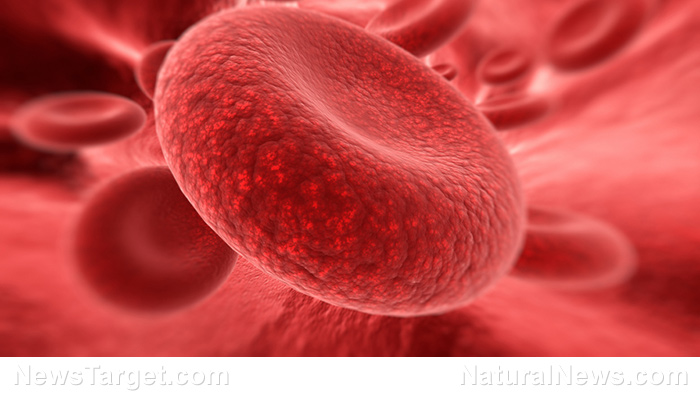Vitamin A deficiency causes significant harm to blood stem cells… nutrients once again found crucial for prevention of disease
05/15/2017 / By Russel Davis

A recent study published in the journal Cell revealed that vitamin A deficiency may lead to adverse effects on the hematopoietic system in the bone marrow. According to the study, vitamin deficiency may greatly impact the production of important hematopoietic stem cells. Previous research found that stem cells contain two main characteristics. First, stem cells undergo pluripotency, a process that differentiates stem cells various cell types that make up distinct tissues. Second, the stem cells need to regenerate in order to provide new specialized tissues.
Hematopoietic stem cells, first discovered in a 2008 study, were found to enter a state of dormancy most of the time and only become activated in the event of an emergency such as bacterial or viral infections, heavy blood loss, or chemotherapy. Hematopoietic stem cells then return to their dormant state once they have accomplished their work. The researchers inferred that this mechanism protected the cells from harmful mutations that could result in the onset of leukemia. In the past, the scientific community was not able to identify the mechanism behind the activation and dormancy of hematopoietic stem cells.
However, the recent study revealed that a vitamin A metabolite called retinoic acid played a major role in this process. To carry out the study, a team of researchers at the German Cancer Research Center examined hematopoietic stem cells in mice models and found that those lacking the vitamin A metabolite inhibited active hematopoietic stem cells from returning to a dormant state.
The power of the elements: Discover Colloidal Silver Mouthwash with quality, natural ingredients like Sangre de Drago sap, black walnut hulls, menthol crystals and more. Zero artificial sweeteners, colors or alcohol. Learn more at the Health Ranger Store and help support this news site.
The research team also found that retinoic acid deficiency prompted the essential stem cells to develop into specialized blood cells instead. The experts also noted that the stem cells’ inability to return into a dormant state meant that they could no longer be considered as reserved cells for future use. The results not only provided insight on the development of blood cells, but also demonstrated how low vitamin A levels impair the immune system, the research team stated. The body cannot produce its own vitamin A, the researchers added.
“If we feed these mice on a vitamin A deficient diet for some time, this leads to a loss of stem cells. Thus, we can prove for the first time that vitamin A has a direct impact on blood stem cells. This shows how vitally important it is to have a sufficient intake of vitamin A from a balanced diet,” Lead author Nina Cabezas-Wallscheid quoted in UPI.com
Potential implications in cancer treatment
The research team hopes that the recent findings result in new cancer treatment prospects. Previous studies have shown that like healthy stem cells, cancer cells also have the ability to go into a dormant state. According to past research, the cancer cells’ metabolism shuts down almost completely during their dormant state, making them resistant to chemotherapy. “Once we understand in detail how vitamin A or retinoic acid, respectively, sends normal and malignant stem cells into dormancy, we can try to turn the tables. If we could make cancer cells temporarily enter an active state, we could thus make them vulnerable to modern therapies,” lead researcher Andreas Trumpp reported in ScienceDaily.com.
The research team collaborated with scientists at the European Bioinformatics Institute in Cambridge and conducted a genome-wide analyses of single cells and found that the transition from dormant to active stem cells and then on to progenitor cells was an ongoing process. The team also found that the transition process follows a different path for each individual cell. The research team inferred that specific types of cells develop step by step following a defined pattern. The recent analyses provided new insight on how cell differentiation occurs in the body.
Read more articles like these when you visit Discoveries.news.
Sources include:
Tagged Under: cancer, cells, Stem cells, vitamin A




















